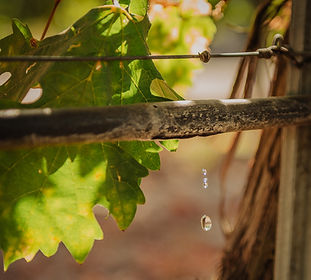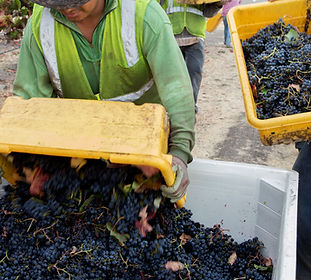Sustainable Winegrowing and Winemaking
Sustainable winegrowing and winemaking is a holistic approach that conserves natural resources, protects the environment, enhances wine quality, enriches the lives of employees and communities, and safeguards family farms and businesses — today and for generations to come.
California Sustainable Winegrowing Alliance, LIVE, Long Island Sustainable Winegrowing, Oregon Wine, New York Wines, SIP Certified,
Washington State Wine and Washington Winegrowers support the following sustainable winegrowing and winemaking principles:
Holistic Approach:
Sustainable winegrowing and winemaking is an integrated approach that acknowledges the connection between vineyards, wineries, surrounding ecosystems and communities.

Triple Bottom Line:
Sustainable practices satisfy the triple bottom line of environmental stewardship, social equity and economic viability.
Continuous Improvement:
Sustainability involves a process of evaluation, improvement and re-evaluation, acknowledging that sustainability is a journey. Best practices evolve with updated research, and new technologies and adoption of improved practices is on-going.

Comprehensive, Science-Based Practices:
Sustainable vineyards and wineries use a broad set of measurable science-based practices that vary based on local conditions and vineyard and/or winery scale and objectives.
Common sustainable winegrowing practices include:
CaliforniaWineIns.jpg)
Natural Resources Conservation
Conserve water and energy in both vineyard and winery, and protect water and air quality
CaliforniaWineInstitute.jpg)
Biodiversity
Encourage biodiversity and protect wildlife habitat in and around the vineyard and winery
WI%20(9).jpeg)
Soil Health
Promote soil conservation, fertility and regeneration to improve vine health, increase water infiltration and enhance wildlife habitat

Employee & Community Stewardship
Protect the health and well-being of vineyard and the winery employees, bolster vibrant family farms and businesses, and enhance community quality of life
WenteVineyards.jpg)
Low Input Farming
Leverage the benefits of natural processes to minimize the need for external inputs in the vineyard

Climate Resiliency
Capture and store carbon, reduce greenhouse gas emissions and carbon footprints, and adapt to climate change impacts

Sustainable Certification:
Vineyards and wineries that obtain sustainable certification adhere to the above principles and undergo independent verification that they meet rigorous, publicly available requirements.
Learn more with these resources:
-
Visit Discover California Wines' website to learn more about sustainable winegrowing
-
Become a Sustainable Winegrowing Ambassador. Take this free one-hour course
-
Take the Long Island Sustainable Winegrowing Sustainable Wine Professional Course
-
Discover the definition of sustainability, as told by farmers, vintners, and their children
